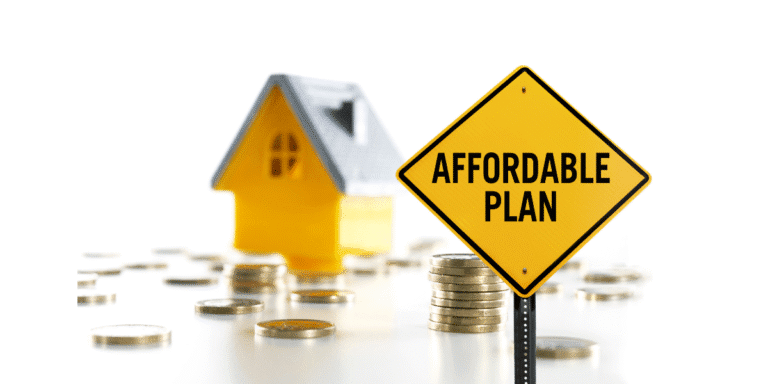On January 19, 2025, Texas lawmakers gathered to address the state’s increasing property tax burden, a growing concern for homeowners throughout the state. Texas, which is one of the few states that does not impose a state income tax, relies heavily on property taxes to fund essential public services such as education and local governments. However, the surge in property values over the past few years has led to significant increases in property tax bills, creating financial stress for homeowners and renters alike.
Rising Property Taxes Amid Growing Home Values
The property tax system in Texas has long been a point of contention. While the lack of a state income tax is often touted as a benefit for residents, the state’s reliance on property taxes to fund services has put pressure on homeowners as property values continue to climb. In fast-growing cities like Austin, Dallas, and Houston, the booming real estate market has led to sharp increases in property tax assessments, outpacing the ability of many residents to keep up with the rising costs.
The rapid increase in property values has meant that homeowners, especially in popular urban areas, are seeing their property tax bills skyrocket. In some cases, the increases have been so steep that homeowners have been forced to consider relocating or selling their homes due to the escalating costs. Renters are also feeling the effects, as landlords often pass these higher property taxes onto tenants through rent increases.
Calls for Reform and Property Tax Caps
In response to the growing burden on homeowners, the Texas Association of Realtors has called for a comprehensive review of the state’s property tax system. Many advocates are pushing for the implementation of a cap on annual property tax increases, which they argue would provide much-needed relief for homeowners. By placing limits on how much property tax bills can increase each year, this reform could help prevent residents from being priced out of their homes as property values continue to rise.
This debate is particularly relevant in cities like Austin, where skyrocketing property values have contributed to a sharp rise in property taxes. The demand for housing in these rapidly growing urban areas is driving up property values, which in turn leads to higher tax assessments. As wages in many parts of the state have not kept pace with these rising costs, the affordability of housing has become a major issue for many residents.
The Impact on Housing Affordability
As property taxes continue to climb, they have compounded the ongoing housing affordability crisis in Texas. The increasing costs of homeownership, paired with higher rent prices, have made it increasingly difficult for middle- and low-income residents to find affordable housing in many parts of the state. In cities like Austin, where the tech boom has attracted a wave of new residents, the cost of living has soared, pushing many residents out of neighborhoods that were once considered affordable.
While the state’s rapid population growth has contributed to the demand for housing, it has also created a situation where property values—and, by extension, property taxes—have outpaced the growth in wages and incomes. For many Texans, the financial strain from rising property taxes has become an insurmountable challenge, leading to calls for reform in how the state handles property taxation.
Potential for Tax Reform and Long-Term Solutions
As the debate over property taxes continues, Texas lawmakers are considering potential reforms that could offer long-term solutions to the affordability crisis. One possible reform could be the implementation of a property tax cap, limiting how much tax bills can increase each year, providing a buffer for homeowners against rapid tax hikes. Such a policy could help stabilize property taxes and reduce the financial pressure on homeowners, especially in fast-growing metropolitan areas.
Another avenue for reform could involve revisiting the state’s approach to funding public services. Since Texas does not levy a state income tax, it remains heavily reliant on property taxes to fund schools, local governments, and other essential services. Lawmakers may consider diversifying the state’s revenue sources, potentially exploring other forms of taxation or finding alternative ways to fund public services without relying so heavily on property taxes.
Long-Term Economic and Housing Market Effects
If significant property tax reforms are enacted, the long-term effects could help to stabilize Texas’s housing market and improve affordability for many residents. Reducing the burden of property taxes could make it easier for residents to remain in their homes, preventing displacement due to rising costs. It could also help renters by reducing the pressure on landlords to raise rents in response to rising property taxes.
In addition, a reform could encourage more investment in affordable housing, as developers and local governments would have more flexibility to prioritize the construction of affordable units without the added pressure of rapidly increasing property tax assessments. This could help alleviate the supply shortage in affordable housing, which is a key factor driving up costs in many parts of the state.
Conclusion: A Crucial Crossroads for Texas Housing
Texas’s growing property tax burden has become a central issue in the state’s ongoing housing affordability crisis. As property values continue to rise, homeowners and renters alike are feeling the financial strain of higher property tax bills. The push for reform, including property tax caps and a review of how public services are funded, could offer much-needed relief for residents, especially in fast-growing cities like Austin, Dallas, and Houston. With lawmakers poised to consider changes to the property tax system, the outcome of this debate could have far-reaching implications for the state’s housing market and its ability to accommodate the growing population in a way that ensures housing remains affordable for all.
